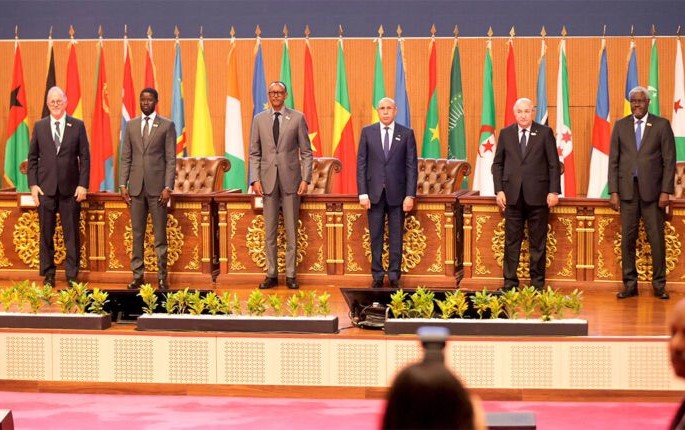The Continental Education Conference has brought together African heads of state and government for a high-stakes dialogue on education transformation.
The conference, themed “Educating and Qualifying Our Youth for a Prosperous Integrated and Dynamic Africa,” is the most significant gathering of African leaders on education this year.
The scale of Africa’s educational challenge was highlighted by UNICEF Deputy Executive Director Ted Chaiban’s presentation on demographic trends.
With the continent’s child population expected to reach 930 million by 2050, African Union Commission (AUC) Chairperson Moussa Faki Mahamat emphasized the urgency of addressing the looming crisis in teaching capacity, with a current shortage of 15 million teachers.
Rwanda’s President Paul Kagame demonstrated how political will can translate into concrete action, highlighting his country’s increase in education spending from 11% to 17% of its national budget.
Senegal’s President Bassirou Diomaye Faye outlined reforms focusing on digital transformation and market-relevant education to prepare Africa’s youth majority for an increasingly digital economy.
Regional cooperation emerged as another key solution, with Algeria’s President Abdelmadjid Tebboune announcing expanded support for Pan-African education.
Building on Algeria’s existing support for 65,000 African students, the country will now provide 2,500 annual scholarships for higher education and vocational training.
Host President Mohamed Ould Ghazouani of Mauritania, and Chairperson of the African Union (AU), synthesized these various approaches, emphasizing how infrastructure deficits and climate impacts affect education across the continent.
His call for collective action reflects the growing recognition that educational transformation requires both national commitment and regional cooperation.
The Continental Education Conference is a significant step towards addressing the educational challenges facing the continent.
The high-level engagement of African Heads of State signals strengthened political will to address these challenges.
Their participation comes at a crucial moment when the continent faces both unprecedented demographic opportunities and pressing needs for educational transformation.
The continent’s child population is expected to reach 930 million by 2050, with a current shortage of 15 million teachers. This presents a significant challenge for African governments, as they seek to provide quality education to their citizens.
Algeria’s President Abdelmadjid Tebboune announced expanded support for Pan-African education, including 2,500 annual scholarships for higher education and vocational training.
This commitment is expected to have a positive impact on education across the continent.
Senegal’s President Bassirou Diomaye Faye outlined reforms focusing on digital transformation and market-relevant education to prepare Africa’s youth majority for an increasingly digital economy.
This approach is expected to equip African youth with the skills they need to compete in the global economy.
President Ghazouani emphasized the need for collective action to address the educational challenges facing the continent. This call to action is expected to galvanize African governments to work together to address the educational challenges facing the continent.
The conference is expected to produce the Nouakchott Declaration, which will outline the commitments and actions of African leaders to address the educational challenges facing the continent.









Comment here